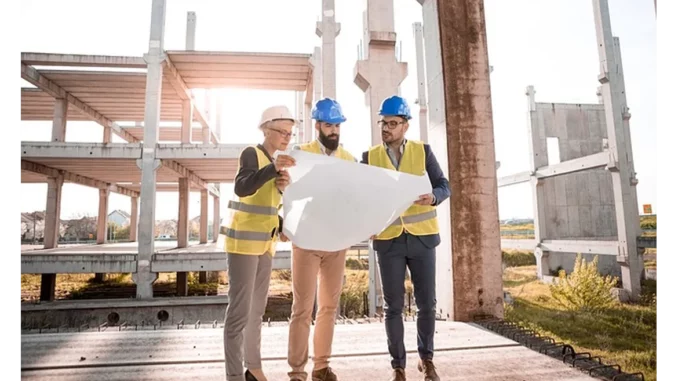
When embarking on the journey of managing your own build, the path may seem daunting, filled with numerous considerations and potential pitfalls. To shed some light on this intricate process, I sat down with Sarah Bennett, a project manager with over a decade of experience in construction management. Her insights provide invaluable guidance for those daring enough to take on the challenge of managing their own build.
Focus360 Energy: property compliance services – pre-planning to post-construction. Learn more.
Understanding Your Property Needs and Goals
Sarah emphasises the importance of starting with a clear understanding of your property needs and goals. “Before anything else, you need to have a vision,” she tells me. “Determine the must-haves versus optional elements and consider lifestyle changes or future-proofing aspects such as accessibility and resale value.”
During Sarah’s own build project, she spent considerable time balancing design aesthetics with practicality. “It’s about finding that sweet spot between a space that feels good and one that functions well. The flow of the home, optimisation of space, and ensuring ample natural light were key considerations for me.”
Architectural Plans and Professional Engagement
Engaging an architect or design professional is a pivotal step. Sarah recounts her experience working with an architect: “It’s essential to communicate effectively and review drafts meticulously. You want to ensure the plans align with your vision before moving forward.”
Understanding the architectural planning process can prevent future headaches. Sarah highlights the significance of liaising with planning consultants and navigating potential conservation or listed building issues. “It’s not just about getting the plans approved; it’s about understanding the regulations and ensuring compliance every step of the way.”
Budgeting and Detailed Specification Preparation
Budgeting is often where projects can go awry. Sarah advises on forming a comprehensive budget that includes hidden charges, contingencies, and professional fees. “It’s crucial to prepare a detailed room-by-room specification,” she says. “This helps avoid ambiguity and costly surprises later on.”
Creating a tender pack and obtaining multiple contractor quotations is another critical task. Sarah shares, “You need to compare quotes accurately, ensuring all components are covered. Look out for discrepancies and don’t hesitate to ask questions.”
Vetting and Selecting Contractors
Choosing the right contractor can make or break your project. Sarah underscores the importance of researching backgrounds, checking accreditations, and reviewing previous work. “Conduct thorough interviews to assess their understanding of the project and compatibility. It’s not just about the skills; it’s about communication and trust.”
When drafting a formal contract, key clauses should include the scope of work, timelines, payment schedule, and dispute resolution. “A well-drafted contract protects both parties and sets clear expectations,” Sarah adds.
Site Preparation and Safety
Before breaking ground, proper site preparation is vital. Sarah mentions setting up security measures, disconnecting supplies, and communicating with neighbours. “An effective start meeting with the builder sets the tone for the project. It’s about ensuring everyone is on the same page.”
Project Monitoring and Quality Control
Throughout the construction phase, Sarah stresses the importance of project monitoring and quality control. She regularly scheduled site visits and progress meetings, engaging third-party professionals when necessary. “Building regulations inspections have limitations, so it’s essential to ensure all work aligns with the agreed specification.”
Final Completion and Handovers
As the project nears completion, understanding the snagging process is crucial. Sarah advises, “Identify defects and address them before finalising work. Professional final inspections are vital, and don’t release the final payment until you’re completely satisfied with the quality.”
Obtaining all necessary certifications—electrical, gas, glazing, fire safety—before completion is non-negotiable. “These certifications are significant for securing insurance and facilitating future property sales or refinancing,” Sarah notes.
Conclusion and Follow-Up
In conclusion, Sarah reminds us that managing your own build is a marathon, not a sprint. “Have a clear plan following each stage, and be prepared to address problems as they arise. It’s a learning process, but with the right preparation and mindset, it’s incredibly rewarding.”
Her experience serves as a testament to the intricacies and satisfaction of managing your own build. By understanding each phase and employing meticulous planning, aspiring project managers can transform their vision into reality with confidence and clarity.
By Tobiasz Karcz


Be the first to comment